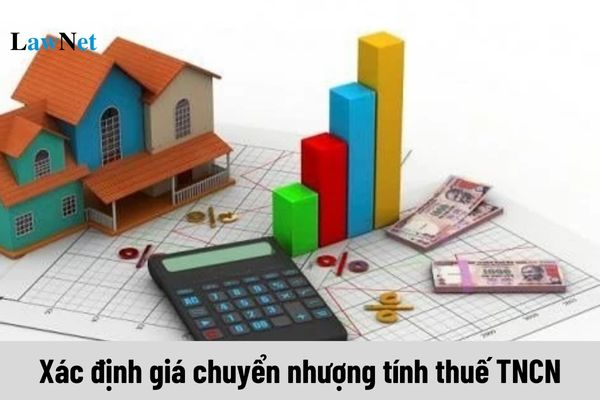How to determine the transfer price for calculation of personal income tax from transferring contributed capital in Vietnam?
How to determine the transfer price for calculation of personal income tax from transferring contributed capital in Vietnam?
Based on Clause 1, Article 11 of Circular 111/2013/TT-BTC, the regulations are as follows:
Basis to calculate tax on income from capital transfer
1. For income from capital contribution transfer:
The basis for calculating tax on income from capital contribution transfer is taxable income and tax rate.
a) Taxable income: Taxable income from capital contribution transfer is determined by the transfer price minus the purchase price of the transferred capital and reasonable expenses related to generating income from capital transfer.
In cases where the enterprise accounts in foreign currency, and individuals transfer capital contributions in foreign currency, the transfer price and purchase price of the transferred capital are determined in foreign currency. If the enterprise accounts in VND, and individuals transfer capital contributions in foreign currency, the transfer price must be determined in VND according to the average exchange rate on the interbank foreign currency market announced by the State Bank of Vietnam at the time of the transfer.
a.1) Transfer price
The transfer price is the amount that an individual receives according to the capital transfer contract.
In cases where the transfer contract does not specify a payment price or the payment price in the contract does not match the market price, the tax authority has the right to set the transfer price according to the provisions of the law on tax management.
Thus, in taxable income, the Transfer Price is the amount that individuals receive according to the capital transfer contract. When the contract does not specify a payment price or the price in the contract does not match the market price, the tax authority has the right to determine the transfer price according to the provisions of the tax management law.

What are regulations on tax payable as a basis for personal income tax reduction consideration in Vietnam?
Based on point b, Clause 1, Article 4 of Circular 111/2013/TT-BTC, the regulations are as follows:
Tax Reduction
According to Article 5 of the Personal Income Tax Law, Article 5 of Decree No. 65/2013/ND-CP, taxpayers experiencing difficulties due to natural disasters, fire, accidents, serious illnesses affecting their tax-paying ability are considered for tax reduction corresponding to the level of damage but not exceeding the payable tax. Specifically:
1. Determining the reduced tax amount
a) Tax reduction consideration is done on an annual basis. Taxpayers experiencing difficulties due to natural disasters, fire, accidents, or serious illnesses in a tax year are considered for a reduction in the payable tax of that tax year.
b) The taxable amount used as a basis for granting tax reduction is the total personal income tax the taxpayer has to pay in the tax year, including:
b.1) Personal income tax already paid or deducted on income from capital investment, income from capital transfer, income from real estate transfer, income from winnings, income from royalties, income from franchising, inheritance income, and gift income.
b.2) Personal income tax payable on income from business activities and income from wages and salaries.
c) The basis for determining the level of damage for tax reduction is the total actual expense for overcoming damage minus (-) compensation received from insurance organizations (if any) or from organizations and individuals causing the accident (if any).
d) The discount amount is determined as follows:
d.1) If the payable tax in the tax year is greater than the level of damage, the tax reduction is equal to the level of damage.
d.2) If the payable tax in the tax year is less than the level of damage, the tax reduction is equal to the payable tax.
Therefore, the tax amount to be paid as a basis for tax reduction consideration is the total personal income tax that the taxpayer has to pay in the tax year, including the specific contents listed above.
What are regulations on personal income tax reduction in Vietnam?
Based on Article 4 of Circular 111/2013/TT-BTC, taxpayers experiencing difficulties due to natural disasters, fire, accidents, or serious illnesses affecting their tax-paying ability are considered for tax reduction corresponding to the level of damage but not exceeding the payable tax. Specifically:
- Determining the reduced tax amount
+ Tax reduction consideration is conducted based on the tax year. Taxpayers facing difficulties due to natural disasters, fire, accidents, or serious illnesses in a tax year are considered for a reduction in the payable tax of that year.
+ The tax amount to be paid as a basis for considering tax reduction is the total personal income tax that the taxpayer must pay in the tax year, including:
++ Personal income tax already paid or deducted for income from capital investment, income from capital transfer, income from real estate transfer, income from winnings, income from royalties, income from franchising, inheritance income, and gift income.
++ Personal income tax payable for income from business activities and wages, salaries.
+ The basis for determining the level of damage for tax reduction is the total actual expense for overcoming damage minus (-) the compensation received from insurance organizations (if any) or from organizations and individuals causing the accident (if any).
+ The discount amount is determined as follows:
++ If the payable tax for the tax year is greater than the level of damage, the tax reduction equals the level of damage.
++ If the payable tax for the tax year is less than the level of damage, the tax reduction equals the payable tax.
- Procedures and files for tax reduction consideration are implemented according to guidance documents on tax management.

